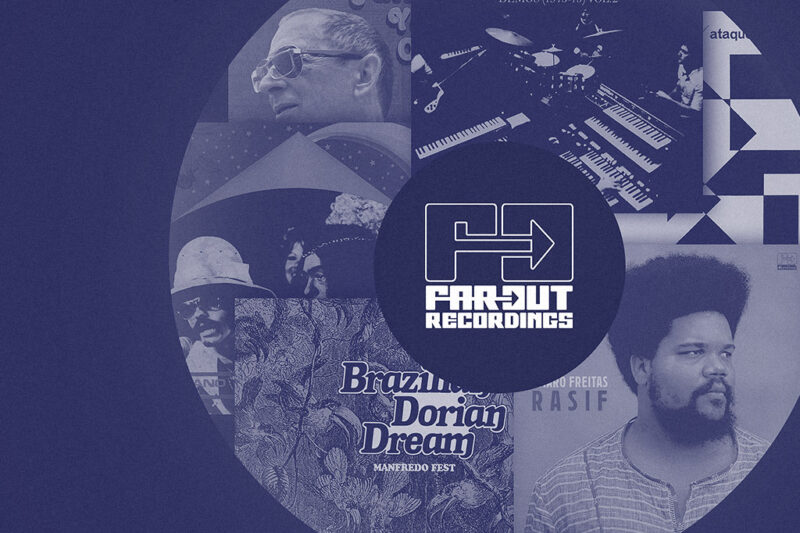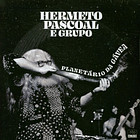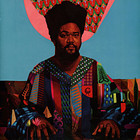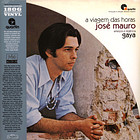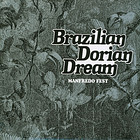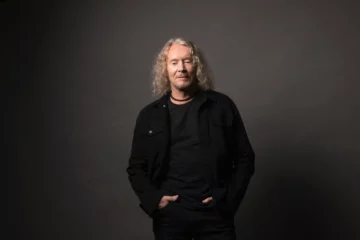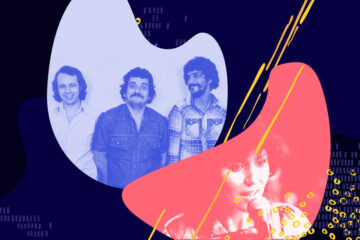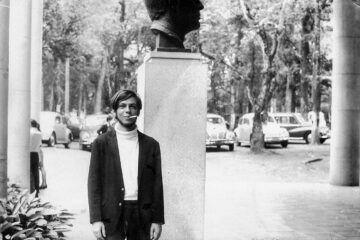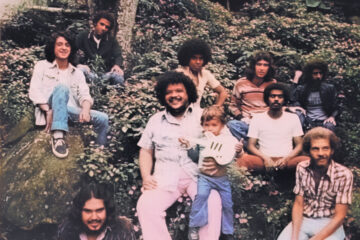It’s hard to say what the status and popularity of Brazilian music would look like internationally without Joe Davis. Most likely much worse: With his label Far Out Recordings the British DJ, producer and music enthusiast has been tirelessly promoting Brazilian music culture for 26 years now – countless listeners have come into contact with it for the first time through Davis, Brazilian acts such as Azymuth, Joyce or Marcos Valle, who were more or less forgotten by the world public after important albums in the sixties and seventies, owe their international rediscovery and a second global career to him. Davis’ passion for Brazilian music originates in his work as a DJ. Surrounded by the record collection of his brother, which is 15 years older than him, he grew up with soul, jazz and funk from an early age, the enterprising label owner tells us when we reach him in the home office of his flat in the West London district of Ealing. Gilles Peterson, with whom he went to school, Paul Murphy and Norman Jay were the formative figures of that time. From the mid-eighties onwards, the rare-groove scene experienced an enormous surge in popularity, which later became tangible under the name of acid jazz, and as a result of this, an ever greater differentiation, in which one style revival followed the next: »You had a time, like six months, when everyone played boogaloo, you had another time with six months, when everyone played deep trip-hop, you had another time, when people played fast fusion, you had another time, when people played salsa,« Davis recalls.
Around 1990, the genre merry-go-round reached Brazil. By then, Davis had long since earned a reputation as a Brazil expert. As early as 1985, he came across a Brazilian who ran a record shop in Sao Paulo called Eric’s Discos. Initially he ordered by phone (»much to the disappointment of my father, when the phone bill came«), a year later he flew to Sao Paulo for the first time – still a minor, without speaking a word of Portuguese – and literally spent three weeks in some space above the shop: ╗I sat there with a packet of cigarettes and a can of guaraná and listened through thousands of records: This place looked more like a library or a warehouse – in some cases he had hoarded hundreds of copies of an obscure pressing there«. In the following years, this business relationship developed into a lively trade, especially after the Brazil wave really took off: Davis had barley arrived in London and sold the records he had imported, sometimes by post, sometimes in his hand luggage, than he was already back on the plane to Sao Paulo. Davis reckons that he took hundreds of flights between 1990 and 1994. By the mid-nineties, he felt that he had »discovered nearly everything there was to discover in Brazilian music that interested me,« says Davis. At the same time, he received requests from labels like Blue Note, Talkin’ Loud and Soul Jazz to curate compilations of Brazilian music. Anthologies like »Brazilica!« and »Blue Brazil« became authoritative blueprints that quickly found their counterpart in this country in the »Brazilectro« series, which was considered groundbreaking at the time. In fact, these not only served and reinforced the interest in older Brazilian music, but also spawned a whole generation of novelty acts like De-Phazz, Jazzanova or the Trüby Trio, who intertwined classic Latin American samba, batucada and maracatu rhythms with electronic sounds.
»My intention with the label from the beginning was to give something back to the creators of this music.«
Joe Davis
The train driver on whose bandwagon all these producers jumped was Joe Davis. With his label Far Out Recordings, founded in 1994, the now 51-year-old was home to the epicenter of the Brazil craze from the very beginning. In addition to new albums by Azymuth, Joyce, Marcos Valle, Arthur Verocai, The Ipanemas, Sabrina Malheiros, Clara Moreno and Binario, Davis also released productions inspired by Brazilian music by artists such as Theo Parrish, Mark Pritchard, 4hero, Dego, Andres, Marcellus Pittman, Kirk Degiorgio, Nicola Conte, Henry Wu and Rick Willhite. Especially in his remix projects, Davis always keeps at least one ear on the dancefloor. With reissues, as in the case of Milton Nascimento or Roberto Quartin, he tends to be rather cautious: »This has to be ultra-rare stuff that is either totally unknown, hardly available or has never actually been released«, Davis explains his release policy. Nevertheless, with a total of over 300 releases over the years, he has amassed a handsome catalogue of MPB reissues. What fascinates him about Brazilian music of the sixties and seventies? »Its richness, created by the mixture of different – African, European, American – musical cultures, its rhythmic, melodic and harmonic sophistication«, says Davis. He fully agrees with the thesis, that this specific quality could also be caused by the political framework conditions – after all, Brazil was a dictatorship at the time -, that the artists had to develop a kind of code in their lyrics, but also in their music, in order to get through under the radar of the censors. After concentrating on CDs for some time, Far Out has now returned its focus to vinyl production. About half of its record sales are digital, Davis estimates, but this varies from month to month. In any case, the commercial aspect is not in the foreground for him at Far Out: »I made a lot more money when I was still selling old records. My intention with the label from the beginning was to give something back to the creators of this music.« The fact that no tours are possible at the moment is »a nightmare,«, Davis moans; fortunately the label work is suffering less from the pandemic. Currently he is busy adjusting the release schedule for 2021, but doesn’t want to reveal too much yet. However, a new album by Arthur Verocai is definitely in the pipeline.

